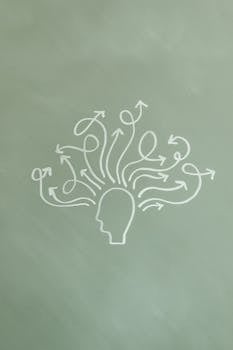Understanding Psychosis
Psychosis is a serious mental health condition characterized by a disconnection from reality. Individuals experiencing psychosis may have difficulty distinguishing between what is real and what is not, leading to a range of distressing symptoms. This article will explore the nature of psychosis, its causes, symptoms, diagnosis, and treatment options. Understanding psychosis is crucial for effective intervention and support for those affected.
Symptoms of Psychosis: The core symptoms of psychosis involve disturbances in thought, perception, and emotion. These can manifest in several ways:
- Hallucinations: These are sensory perceptions that occur without an external stimulus. Hallucinations can involve any of the senses—auditory hallucinations (hearing voices) are most common, but visual, tactile (feeling things that aren't there), olfactory (smelling things that aren't there), and gustatory (tasting things that aren't there) hallucinations can also occur.
- Delusions: These are fixed, false beliefs that are not based in reality and are resistant to reason or evidence. Delusions can be persecutory (believing one is being followed or plotted against), grandiose (believing one has exceptional abilities or importance), erotomanic (believing someone is in love with them), somatic (believing one has a physical defect or medical condition), or referential (believing that unrelated events have personal significance).
- Disorganized Thinking and Speech: This can manifest as difficulty expressing thoughts clearly, jumping from one topic to another (loose associations), or using words in unusual or nonsensical ways (neologisms).
- Disorganized or Abnormal Motor Behavior: This may range from childlike silliness to catatonic immobility (remaining motionless for extended periods). Agitation and unpredictable behavior can also occur.
- Negative Symptoms: These are characterized by a reduction or absence of normal behaviors and emotions. Negative symptoms can include flat affect (reduced emotional expression), avolition (lack of motivation), alogia (poverty of speech), and anhedonia (inability to experience pleasure).
- Medication: Antipsychotic medications are the cornerstone of treatment. These medications help to reduce the severity of positive symptoms like hallucinations and delusions. Different types of antipsychotics are available, and the choice of medication will depend on individual factors and tolerability.
- Psychotherapy: Cognitive behavioral therapy (CBT) is a particularly effective form of psychotherapy for psychosis. CBT helps individuals to identify and challenge negative thought patterns and develop coping strategies to manage symptoms. Other therapeutic approaches, such as family therapy and social skills training, can also be beneficial.
- Psychosocial Interventions: These interventions aim to improve overall functioning and quality of life. They may include supported employment, housing assistance, and social support groups.
Causes of Psychosis: The exact causes of psychosis are not fully understood, but a combination of genetic, biological, and environmental factors likely plays a role. Genetic predisposition can significantly increase the risk, with some individuals inheriting a greater vulnerability. Brain abnormalities, such as structural changes or neurotransmitter imbalances (particularly dopamine), may also contribute. Environmental factors, such as severe stress, trauma, substance abuse, and lack of social support, can trigger or exacerbate psychotic symptoms in vulnerable individuals.
Diagnosis of Psychosis: Diagnosing psychosis requires a comprehensive assessment by a mental health professional. This typically involves a thorough clinical interview, a review of the individual's history, and a physical examination to rule out other medical conditions that might mimic psychotic symptoms. Neuropsychological testing may be used to evaluate cognitive function. There is no single diagnostic test for psychosis; the diagnosis is based on the presence and severity of the characteristic symptoms. The specific diagnosis may vary depending on the underlying cause and the pattern of symptoms presented. Conditions like schizophrenia, schizoaffective disorder, brief psychotic disorder, and delusional disorder are all characterized by psychotic symptoms, but they differ in their duration, course, and associated features.
Treatment of Psychosis: Treatment for psychosis typically involves a combination of medication, psychotherapy, and psychosocial interventions.
Living with Psychosis: Living with psychosis can be challenging, but with appropriate treatment and support, individuals can manage their symptoms and lead fulfilling lives. Early intervention is crucial to improve long-term outcomes. A strong support system, including family, friends, and mental health professionals, is vital for navigating the challenges of psychosis. Education and self-management strategies are essential for individuals to understand their condition and take an active role in their treatment.

